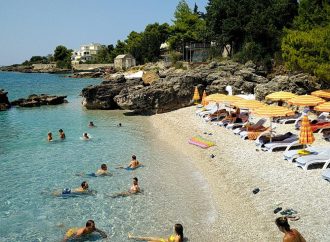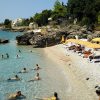The International Monetary Fund (IMF) is an organization composed of 189 nations, aimed towards promoting financial stability worldwide. The IMF’s work has been praised for its potential to help struggling countries make progress, as well as its efforts to keep global economies on track. But what most people don’t know is that there is a
The International Monetary Fund (IMF) is an organization composed of 189 nations, aimed towards promoting financial stability worldwide. The IMF’s work has been praised for its potential to help struggling countries make progress, as well as its efforts to keep global economies on track. But what most people don’t know is that there is a powerful and influential group within the IMF who have their hands on the levers of power – a secret politburo, if you will: the Strategic Planning and Review (SPR). In this blog post, we’ll examine how this small yet powerful group of individuals influences and shapes the IMF’s decisions and policies.
What is the SPR?
The SPR is the IMF’s secret politburo. It is a group of unelected officials who make decisions about the global economy without any accountability. They are not elected by anyone, and they are not accountable to anyone. The only people who know about the SPR are the people who work for the IMF.
The SPR was created in 2008, during the global financial crisis. The idea was that a small group of experts could make quick decisions about how to respond to the crisis, without having to go through the slow and deliberative process of democracy.
Critics say that the SPR is undemocratic and unaccountable. They point out that the members of the SPR are not elected, and they are not accountable to any government or institution. They say that this makes it possible for the SPR to make decisions that benefit special interests, rather than what is best for the global economy.
Who controls the SPR?
The SPR is controlled by the IMF’s Secretariat, which is headed by Managing Director Christine Lagarde. The Secretariat is responsible for the day-to-day operations of the Fund, and its staff are drawn from member countries’ central banks and treasuries.
The decision-making body of the IMF is the 24-member Executive Board, which represents the interests of all 184 member countries. The Board meets once a week to discuss policy issues and approve loan requests and other proposals put forward by the Secretariat.
While the United States has historically had the largest shareholding in the IMF (currently 16.52 percent), it does not have a controlling stake. In fact, no single country has a majority stake in the Fund; decisions are made by consensus. This means that all member countries have an equal say in decision-making, regardless of their shareholding size.
What are the goals of the SPR?
The SPR was established in the aftermath of the 2008 global financial crisis with the goal of providing a buffer against future crises. The facility allows for the rapid provision of funding to member countries in times of need, without the need for IMF approval.
The goals of the SPR are twofold: first, to provide a pool of resources that can be used to address global economic shocks; and second, to promote confidence in the international monetary system.
Since its establishment, the SPR has been used to provide funding to a number of countries experiencing economic crises, including Greece, Ireland, Portugal, and Spain. In each case, the assistance provided by the SPR helped to stabilize the affected country’s economy and prevented further deterioration.
Looking Ahead
The SPR remains an important part of the global economic safety net, and its role is likely to become even more important in the years ahead. As global economic conditions continue to evolve, the IMF will continue to monitor developments and stand ready to provide support when needed.
How has the SPR achieved its goals?
The Strategic Petroleum Reserve (SPR) is a government-owned and -operated energy storage facility in the United States. The SPR was created in the 1970s in response to the 1973 oil crisis, when Arab members of the Organization of Petroleum Exporting Countries (OPEC) embargoed oil exports to the United States in retaliation for American support of Israel during the Yom Kippur War. The embargo caused a dramatic increase in oil prices and gasoline shortages across the country.
In order to mitigate the effects of future oil embargoes or supply disruptions, the SPR was designed to store up to 700 million barrels of crude oil, enough to cover 90 days’ worth of imports at the time. The reserve is currently filled to capacity with 688 million barrels of oil stored in salt caverns along the Texas and Louisiana coasts.
The SPR has been used sparingly over the years, only being tapped into during times of severe supply disruptions such as the Persian Gulf War in 1991 and Hurricane Katrina in 2005. In both cases, SPR releases were able to bring oil prices down and help stabilize supplies until normal production could resume.
More recently, however, the SPR has come under criticism for its role in propping up crude prices. When President Trump announced his intention to withdraw from the Iran nuclear deal in May 2018, he also said that he would reimpose sanctions on Iran’s oil exports starting in November. This announcement led to concerns about a potential shortfall in global
Conclusion
The International Monetary Fund’s Secret Politburo, more commonly referred to as the SPR, is a powerful and influential organization with both positive and negative implications. Their role in influencing international policy has been scrutinized over the years due to their potential influence on global financial power structures. Ultimately, while there may be some questionable practices associated with their dealings, the overall impact they have had on world economics cannot be denied. It is clear that understanding and examining the actions of this mysterious institution can help us build a better future for ourselves and for generations to come.





















Leave a Comment
Your email address will not be published. Required fields are marked with *